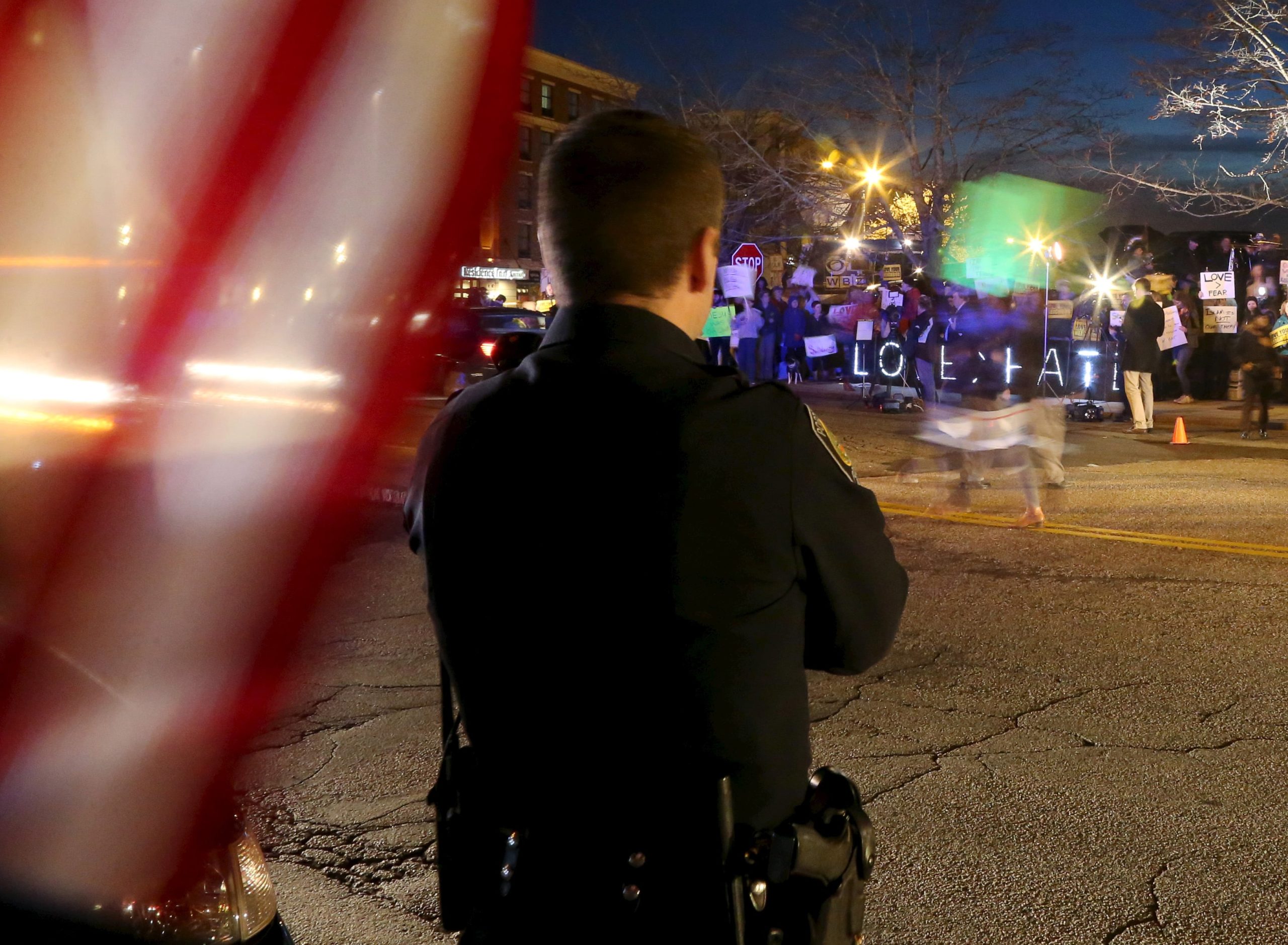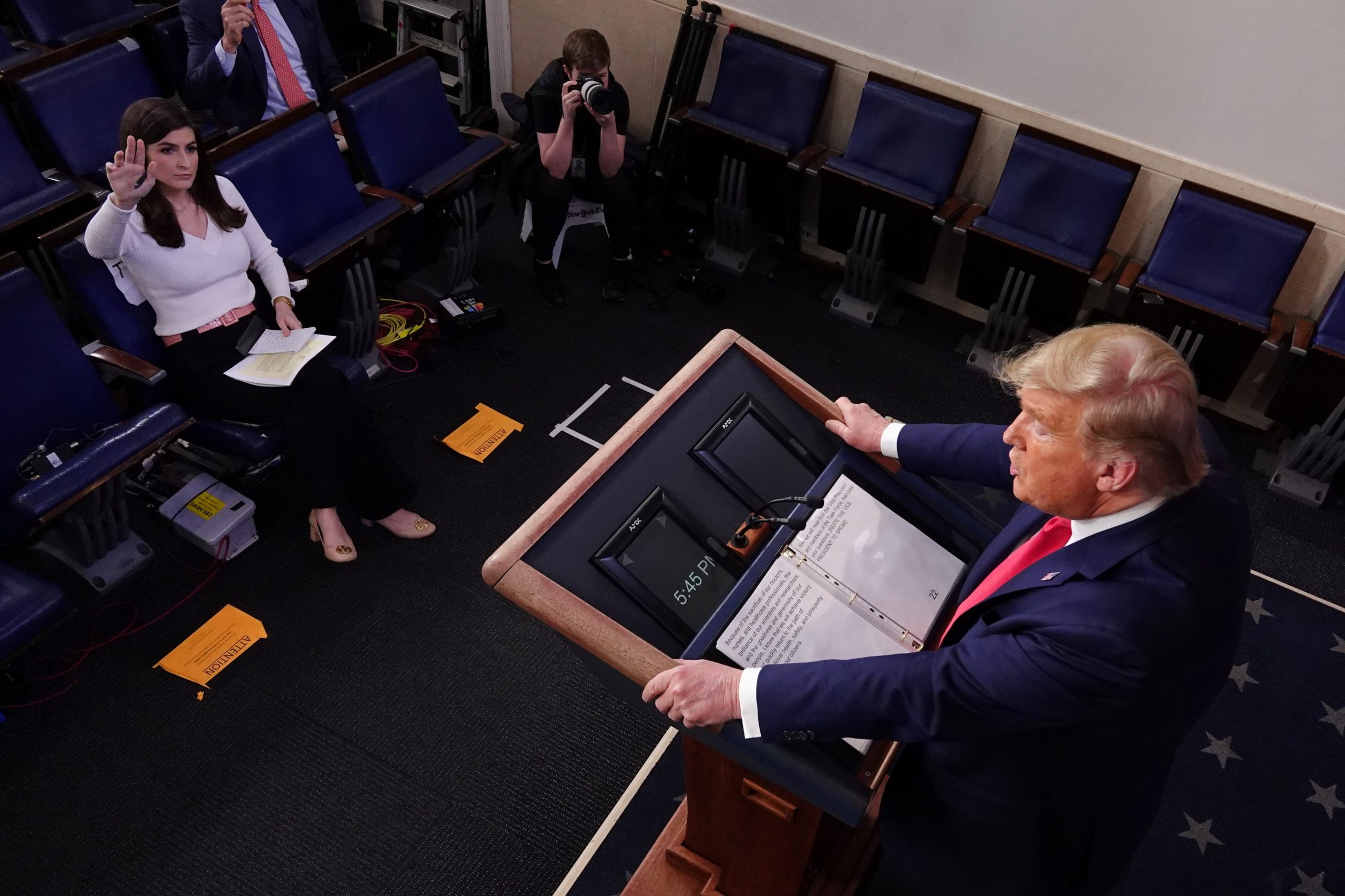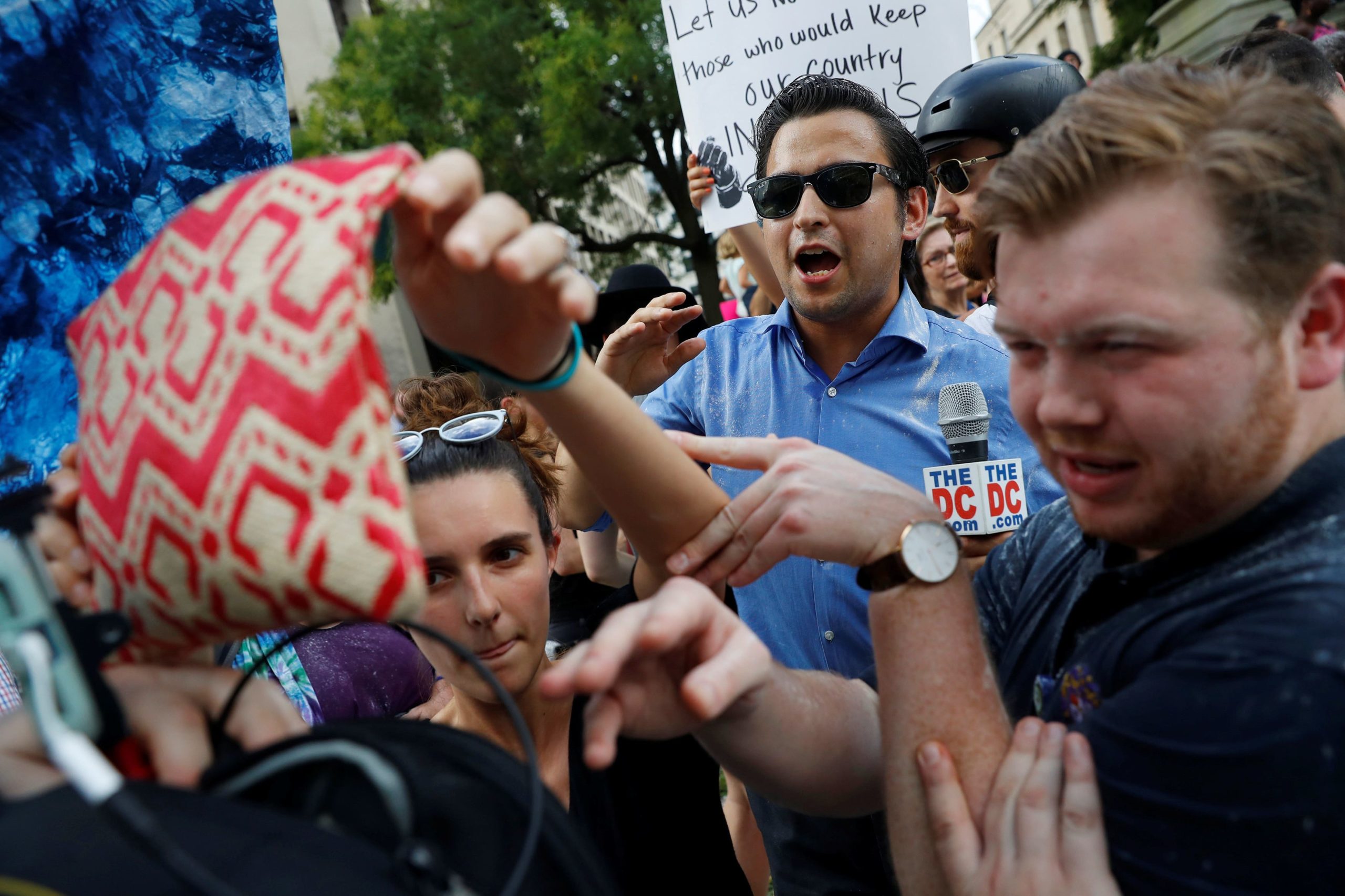ACLU Sues NH City Police Department for Violating Resident’s First Amendment Right to Record Police
“To allow automatic warrantless seizures of bystanders’ cell phones containing recordings of police interactions without any evidence of exigency would deeply chill the First Amendment right to record, as the public simply would not exercise this constitutional right out of fear that doing so would authorize law enforcement to seize one’s phone and hold it indefinitely,” the complaint reads.
White House Asks CNN Reporter to Move to the Back of Press Briefing Room
When Collins and another reporter refused to swap seats, the White House official allegedly told the reporters that the matter would be handled by the Secret Service.
2020 World Press Freedom Index Warns of the Impact of Coronavirus on Free Expression
“The public health crisis provides authoritarian governments with an opportunity to implement the notorious ‘shock doctrine’ – to take advantage of the fact that politics are on hold, the public is stunned and protests are out of the question, in order to impose measures that would be impossible in normal times,” Reporters Without Borders Secretary-General Christophe Deloire said in a statement.
Republican Gubernatorial Candidate Sues Washington Governor Over Stay-At-Home Order
The suit contends that religious groups should be allowed to gather in person “regardless of the number of participants,” if they agree to “adequate social distancing.”
NYPD Seizes Photojournalist’s Drone After He Documented Mass-Burials
"While public safety is certainly part of any reasonable time, place, and manner restrictions...we are very concerned that this antiquated 'avigation' law is being used in an arbitrary and capricious manner to chill newsgathering efforts to report on a matter of grave public concern," Mickey Osterreicher, the general counsel for the National Press Photographers Association, said in a statement.
A new lawsuit brought by a Wisconsin family claims police in their town violated their daughter’s First Amendment rights when they ordered her to remove three Instagram posts that described her experience battling COVID-19 symptoms.
Why Protest Sites and the Border Remain Risky Places to Report
Reporters Committee Attorney and author of the 2019 Press Freedom Report Sarah Matthews explains why borders and protests remain risky for journalists, as well as how data collected in the US Press Freedom Tracker drives her advocacy work.
Twitter Removes More InfoWars-Affiliated Accounts
Among those suspended include InfoWars personality Owen Shroyer, who had recently used Twitter to promote a rally in Austin, Texas against the state’s stay-at-home order. Shroyer has used his accounts to discredit reports that hospitals are overwhelmed by coronavirus patients, though his account was not removed for this reason.







